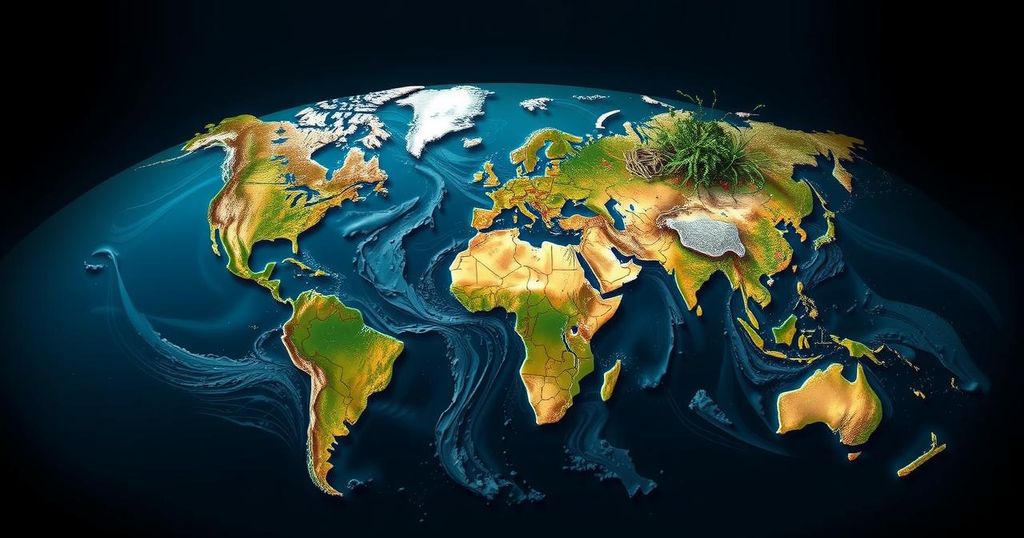A report from the Global Commission on the Economics of Water warns that climate change is disrupting rainfall patterns and threatening fresh water supplies, which could endanger over half of the world’s food production by 2050. Key densely populated areas are facing imminent freshwater shortages, and agricultural outputs, particularly cereals, could plummet by 23%. The report emphasizes the necessity of international cooperation to manage water resources sustainably, calling for the elimination of harmful agricultural subsidies that exacerbate water consumption issues.
A recent report from the Global Commission on the Economics of Water (GCEW) has issued grave warnings regarding the impact of climate change on the world’s freshwater resources, emphasizing that these supplies can no longer be relied upon due to changing rainfall patterns. The report highlights that over half of global food production could face significant risk by 2050 due to this crisis. Key populations in densely populated areas, particularly in northwestern India, northeastern China, and parts of southern and eastern Europe, are now situated in regions where the total storage of water is expected to decline. The GCEW report elaborated on the dire consequences for agriculture, projecting a potential 23% reduction in global cereal production if current trends continue. The persistent increase in temperatures has initiated a vicious cycle characterized by the loss of “green water,” which is essential in maintaining soil moisture and sustaining plant growth. This ultimate decline leads to heightened drought conditions, exacerbating wildfires and biodiversity loss, thereby further diminishing green water resources. The economic ramifications are extensive, with predictions of an average 8% decline in GDP for high-income countries and up to 15% for low-income countries by 2050. These decreases stem from a combination of altered precipitation patterns, elevated temperatures, declining water storage, and limited access to essential water and sanitation facilities. To address these interconnected challenges, the report advocates for viewing the water cycle as a global common good, necessitating cooperative governmental efforts to uphold water sustainability. Singapore’s President Tharman Shanmugaratnam, who co-chairs the GCEW, has emphasized the need for the establishment of common water sustainability goals. He remarked, “We are going to have to set common goals for water sustainability. Ultimately, it will require a global water pact.” Moreover, the GCEW has called for the cessation of harmful subsidies in water-dependent sectors and encourages a redirection of resources towards water-saving solutions, particularly for marginalized communities. Ngozi Okonjo-Iweala, the Director-General of the World Trade Organization and co-chair of the GCEW, pointed out that approximately $600 billion in annual agriculture subsidies promoting excessive water consumption must be reconsidered, advocating a transition away from cultivating water-intensive crops in areas already facing water scarcity.
The reported findings stem from extensive research conducted by the GCEW, initiated in 2022 by the Netherlands. The commission aims to dissect the pivotal roles that water resources play in relation to global health, economic stability, and food security amidst the threats posed by climate change. An increasing shift in rainfall patterns and land mismanagement has led to unprecedented stress on the global water cycle, heightening the urgency for coordinated international responses to safeguard water supplies critical for agriculture and human sustenance.
The GCEW report underscores an urgent call to action regarding the global water crisis and its unprecedented implications for food security and economic stability. With potential drops in both agricultural productivity and GDP leading to widespread consequences, it is crucial for global leaders to forge common goals and strategies to ensure sustainable water management going forward.
Original Source: www.rfi.fr







